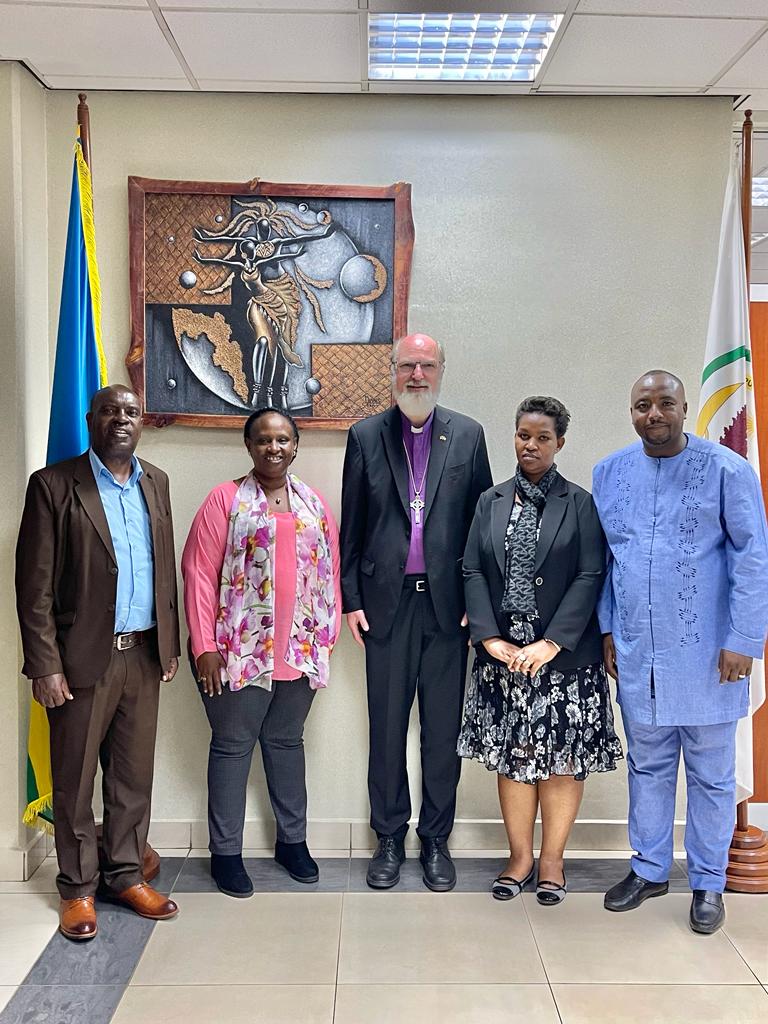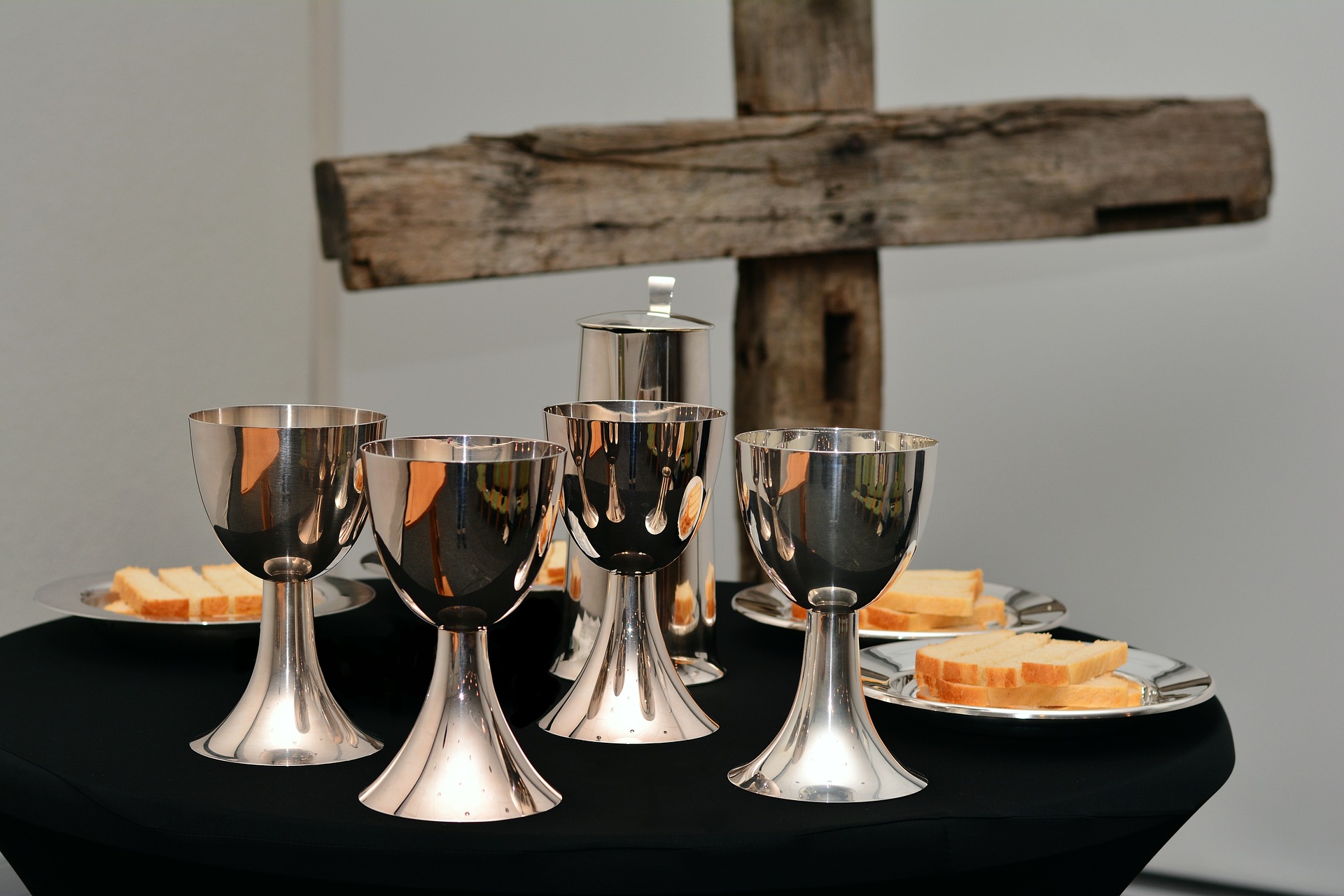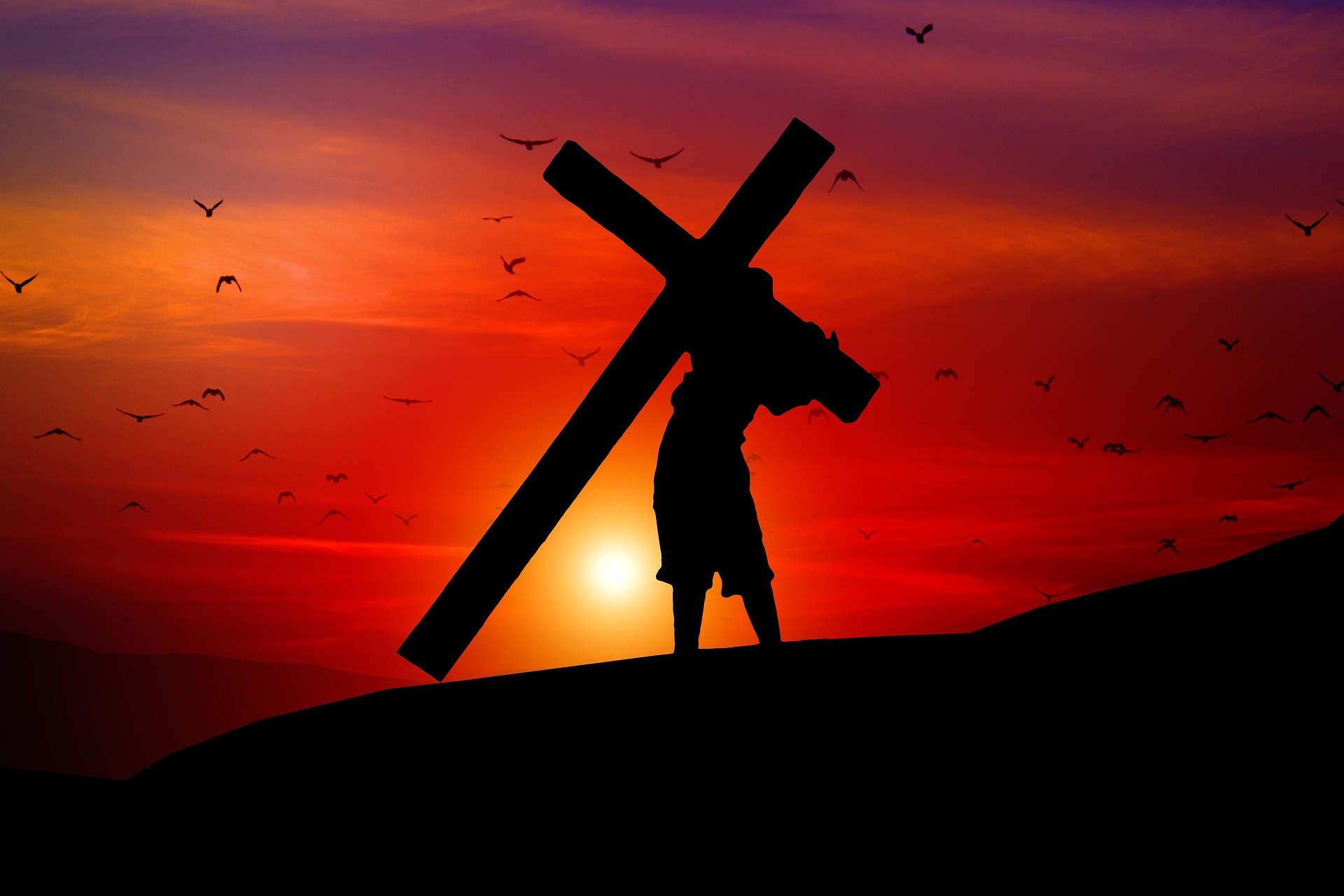The idea that God loves humanity despite its sinfulness is a central tenet in many religious traditions, particularly within Christianity. This concept is often discussed in theological and philosophical terms. Here are some key points that explain why God is believed to love humans despite their sins: Unconditional Love: God’s love is often described as unconditional, meaning it is not based on human behavior or worthiness. This concept of unconditional love suggests that God’s love does not depend on our actions or moral state but is a fundamental aspect of God’s nature. Divine Nature: In Christian theology, God’s nature is inherently loving. The First Epistle of John in the New Testament states, “God is love” (1 John 4:8). This means that love is not just an action God performs, but an essential part of God’s being. Grace and Mercy: God’s love is expressed through grace and mercy. Grace refers to the unearned and undeserved favor of God, while mercy refers to God’s compassion and forgiveness towards humanity. The Christian doctrine of grace emphasizes that salvation and divine favor are gifts from God, not earned by human deeds. Redemptive Purpose: Many religious traditions, especially Christianity, teach that God has a redemptive plan for humanity. Despite human sinfulness, God seeks to restore the relationship between humanity and the divine. In Christianity, this is exemplified through the life, death, and resurrection of Jesus Christ, who is believed to have atoned for human sins. Covenant Relationships: The concept of covenant in the Bible shows that God establishes and maintains a relationship with humanity despite their imperfections. Covenants, like those with Noah, Abraham, and Moses, illustrate God’s commitment to humanity even when they fail to uphold their end of the relationship. Forgiveness and Reconciliation: Forgiveness is a significant aspect of many religious teachings about God’s love. In Christianity, for example, Jesus’ teachings emphasize the importance of forgiveness, mirroring God’s readiness to forgive human sins. The Lord’s Prayer includes a plea for forgiveness, reflecting the belief that God is willing to forgive those who repent. Human Potential and Worth: Some theological perspectives hold that God’s love for humanity is rooted in the inherent worth and potential of human beings. Despite sin, humans are seen as created in the image of God (imago Dei), possessing intrinsic value and the capacity for good. Parental Love: God’s love is often compared to that of a parent’s love for their child. Just as a loving parent continues to love and care for their child despite the child’s mistakes, God is believed to love humanity with a similar enduring and nurturing love. These points collectively illustrate the theological perspective that God’s love for humanity transcends human sinfulness, offering forgiveness, grace, and a path to redemption. This belief provides a foundation for hope, moral striving, and a sense of worth in many religious traditions
Alliance Evangelique au Rwanda visits RGB
We are happy for a visit of AER to RGB for a better collaboration! AER is working Legally in Rwanda and we are Happy for a better collaboration with the government of Rwanda.
John the Baptist Prepares the Way
1 The beginning of the good news about Jesus the Messiah,[a] the Son of God,[b] 2 as it is written in Isaiah the prophet: “I will send my messenger ahead of you, who will prepare your way”[c]—3 “a voice of one calling in the wilderness,‘Prepare the way for the Lord, make straight paths for him.’”[d] 4 And so John the Baptist appeared in the wilderness, preaching a baptism of repentance for the forgiveness of sins. 5 The whole Judean countryside and all the people of Jerusalem went out to him. Confessing their sins, they were baptized by him in the Jordan River. 6 John wore clothing made of camel’s hair, with a leather belt around his waist, and he ate locusts and wild honey. 7 And this was his message: “After me comes the one more powerful than I, the straps of whose sandals I am not worthy to stoop down and untie. 8 I baptize you with[e] water, but he will baptize you with[f] the Holy Spirit.” The Baptism and Testing of Jesus 9 At that time Jesus came from Nazareth in Galilee and was baptized by John in the Jordan. 10 Just as Jesus was coming up out of the water, he saw heaven being torn open and the Spirit descending on him like a dove. 11 And a voice came from heaven: “You are my Son, whom I love; with you I am well pleased.” 12 At once the Spirit sent him out into the wilderness, 13 and he was in the wilderness forty days, being tempted[g] by Satan. He was with the wild animals, and angels attended him. Jesus Announces the Good News 14 After John was put in prison, Jesus went into Galilee, proclaiming the good news of God. 15 “The time has come,” he said. “The kingdom of God has come near. Repent and believe the good news!” Jesus Calls His First Disciples 16 As Jesus walked beside the Sea of Galilee, he saw Simon and his brother Andrew casting a net into the lake, for they were fishermen. 17 “Come, follow me,” Jesus said, “and I will send you out to fish for people.” 18 At once they left their nets and followed him. 19 When he had gone a little farther, he saw James son of Zebedee and his brother John in a boat, preparing their nets. 20 Without delay he called them, and they left their father Zebedee in the boat with the hired men and followed him. Jesus Drives Out an Impure Spirit 21 They went to Capernaum, and when the Sabbath came, Jesus went into the synagogue and began to teach. 22 The people were amazed at his teaching, because he taught them as one who had authority, not as the teachers of the law. 23 Just then a man in their synagogue who was possessed by an impure spirit cried out, 24 “What do you want with us, Jesus of Nazareth? Have you come to destroy us? I know who you are—the Holy One of God!” 25 “Be quiet!” said Jesus sternly. “Come out of him!” 26 The impure spirit shook the man violently and came out of him with a shriek. 27 The people were all so amazed that they asked each other, “What is this? A new teaching—and with authority! He even gives orders to impure spirits and they obey him.” 28 News about him spread quickly over the whole region of Galilee. Jesus Heals Many 29 As soon as they left the synagogue, they went with James and John to the home of Simon and Andrew. 30 Simon’s mother-in-law was in bed with a fever, and they immediately told Jesus about her. 31 So he went to her, took her hand and helped her up. The fever left her and she began to wait on them. 32 That evening after sunset the people brought to Jesus all the sick and demon-possessed. 33 The whole town gathered at the door, 34 and Jesus healed many who had various diseases. He also drove out many demons, but he would not let the demons speak because they knew who he was. Jesus Prays in a Solitary Place 35 Very early in the morning, while it was still dark, Jesus got up, left the house and went off to a solitary place, where he prayed. 36 Simon and his companions went to look for him, 37 and when they found him, they exclaimed: “Everyone is looking for you!” 38 Jesus replied, “Let us go somewhere else—to the nearby villages—so I can preach there also. That is why I have come.” 39 So he traveled throughout Galilee, preaching in their synagogues and driving out demons. Jesus Heals a Man With Leprosy 40 A man with leprosy[h] came to him and begged him on his knees, “If you are willing, you can make me clean.” 41 Jesus was indignant.[i] He reached out his hand and touched the man. “I am willing,” he said. “Be clean!” 42 Immediately the leprosy left him and he was cleansed. 43 Jesus sent him away at once with a strong warning: 44 “See that you don’t tell this to anyone. But go, show yourself to the priest and offer the sacrifices that Moses commanded for your cleansing, as a testimony to them.” 45 Instead he went out and began to talk freely, spreading the news. As a result, Jesus could no longer enter a town openly but stayed outside in lonely places. Yet the people still came to him from everywhere.
The Genealogy of Jesus the Messiah
1 This is the genealogy[a] of Jesus the Messiah[b] the son of David, the son of Abraham: 2 Abraham was the father of Isaac, Isaac the father of Jacob, Jacob the father of Judah and his brothers, 3 Judah the father of Perez and Zerah, whose mother was Tamar, Perez the father of Hezron, Hezron the father of Ram, 4 Ram the father of Amminadab, Amminadab the father of Nahshon, Nahshon the father of Salmon, 5 Salmon the father of Boaz, whose mother was Rahab, Boaz the father of Obed, whose mother was Ruth, Obed the father of Jesse, 6 and Jesse the father of King David. David was the father of Solomon, whose mother had been Uriah’s wife, 7 Solomon the father of Rehoboam, Rehoboam the father of Abijah, Abijah the father of Asa, 8 Asa the father of Jehoshaphat, Jehoshaphat the father of Jehoram, Jehoram the father of Uzziah, 9 Uzziah the father of Jotham, Jotham the father of Ahaz, Ahaz the father of Hezekiah, 10 Hezekiah the father of Manasseh, Manasseh the father of Amon, Amon the father of Josiah, 11 and Josiah the father of Jeconiah[c] and his brothers at the time of the exile to Babylon. 12 After the exile to Babylon: Jeconiah was the father of Shealtiel, Shealtiel the father of Zerubbabel, 13 Zerubbabel the father of Abihud, Abihud the father of Eliakim, Eliakim the father of Azor, 14 Azor the father of Zadok, Zadok the father of Akim, Akim the father of Elihud, 15 Elihud the father of Eleazar, Eleazar the father of Matthan, Matthan the father of Jacob, 16 and Jacob the father of Joseph, the husband of Mary, and Mary was the mother of Jesus who is called the Messiah. 17 Thus there were fourteen generations in all from Abraham to David, fourteen from David to the exile to Babylon, and fourteen from the exile to the Messiah. Joseph Accepts Jesus as His Son 18 This is how the birth of Jesus the Messiah came about[d]: His mother Mary was pledged to be married to Joseph, but before they came together, she was found to be pregnant through the Holy Spirit. 19 Because Joseph her husband was faithful to the law, and yet[e] did not want to expose her to public disgrace, he had in mind to divorce her quietly. 20 But after he had considered this, an angel of the Lord appeared to him in a dream and said, “Joseph son of David, do not be afraid to take Mary home as your wife, because what is conceived in her is from the Holy Spirit. 21 She will give birth to a son, and you are to give him the name Jesus,[f] because he will save his people from their sins.” 22 All this took place to fulfill what the Lord had said through the prophet: 23 “The virgin will conceive and give birth to a son, and they will call him Immanuel”[g] (which means “God with us”). 24 When Joseph woke up, he did what the angel of the Lord had commanded him and took Mary home as his wife. 25 But he did not consummate their marriage until she gave birth to a son. And he gave him the name Jesus.
The Genealogy of Jesus the Messiah
1 This is the genealogy of Jesus the Messiah[b] the son of David, the son of Abraham: 2 Abraham was the father of Isaac, Isaac the father of Jacob, Jacob the father of Judah and his brothers, 3 Judah the father of Perez and Zerah, whose mother was Tamar, Perez the father of Hezron, Hezron the father of Ram, 4 Ram the father of Amminadab, Amminadab the father of Nahshon, Nahshon the father of Salmon, 5 Salmon the father of Boaz, whose mother was Rahab, Boaz the father of Obed, whose mother was Ruth, Obed the father of Jesse, 6 and Jesse the father of King David. David was the father of Solomon, whose mother had been Uriah’s wife, 7 Solomon the father of Rehoboam, Rehoboam the father of Abijah, Abijah the father of Asa, 8 Asa the father of Jehoshaphat, Jehoshaphat the father of Jehoram, Jehoram the father of Uzziah, 9 Uzziah the father of Jotham, Jotham the father of Ahaz, Ahaz the father of Hezekiah, 10 Hezekiah the father of Manasseh, Manasseh the father of Amon, Amon the father of Josiah, 11 and Josiah the father of Jeconiah[c] and his brothers at the time of the exile to Babylon. 12 After the exile to Babylon: Jeconiah was the father of Shealtiel, Shealtiel the father of Zerubbabel, 13 Zerubbabel the father of Abihud, Abihud the father of Eliakim, Eliakim the father of Azor, 14 Azor the father of Zadok, Zadok the father of Akim, Akim the father of Elihud, 15 Elihud the father of Eleazar, Eleazar the father of Matthan, Matthan the father of Jacob, 16 and Jacob the father of Joseph, the husband of Mary, and Mary was the mother of Jesus who is called the Messiah. 17 Thus there were fourteen generations in all from Abraham to David, fourteen from David to the exile to Babylon, and fourteen from the exile to the Messiah. Joseph Accepts Jesus as His Son 18 This is how the birth of Jesus the Messiah came about[d]: His mother Mary was pledged to be married to Joseph, but before they came together, she was found to be pregnant through the Holy Spirit. 19 Because Joseph her husband was faithful to the law, and yet[e] did not want to expose her to public disgrace, he had in mind to divorce her quietly. 20 But after he had considered this, an angel of the Lord appeared to him in a dream and said, “Joseph son of David, do not be afraid to take Mary home as your wife, because what is conceived in her is from the Holy Spirit. 21 She will give birth to a son, and you are to give him the name Jesus, because he will save his people from their sins.” 22 All this took place to fulfill what the Lord had said through the prophet: 23 “The virgin will conceive and give birth to a son, and they will call him Immanuel”(which means “God with us”). 24 When Joseph woke up, he did what the angel of the Lord had commanded him and took Mary home as his wife. 25 But he did not consummate their marriage until she gave birth to a son. And he gave him the name Jesus.





